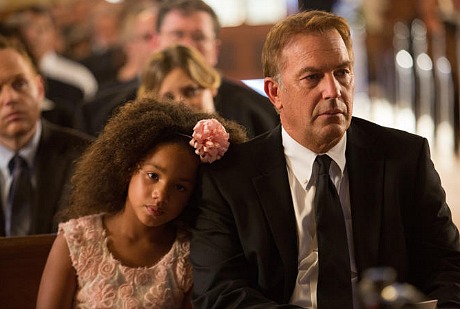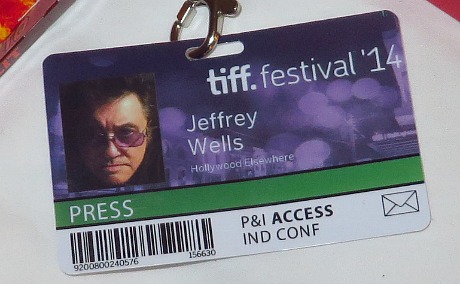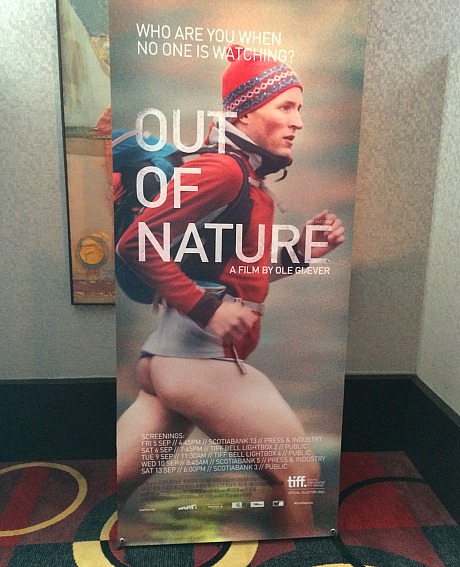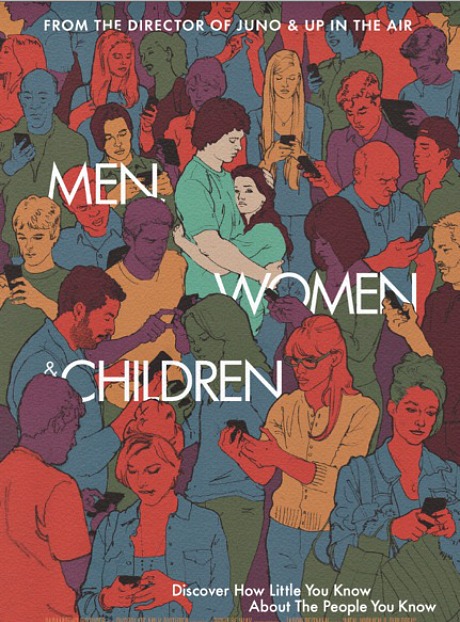I’ve written three or four times about Mike Binder‘s Black and White, a racially-tinged drama in which a hard-drinking, well-off, basically fair-minded L.A. attorney and grandfather, played by Kevin Costner, goes eyeball to eyeball against his African-American in-laws in a custody battle for his granddaughter. And that’s too brief a description about what this film really gets into. Everyone puts on their tiptoe shoes when any kind of racial subject comes up in any context, but not Black and White. It plays it mild and sad and blunt and angry. It’s a lot more candid and straight-from-the-shoulder than you might expect.

Jillian Estell, Kevin Costner in Mike Binder’s Black and White.
I saw Black and White last July with a bit of initial skepticism and concern, and I came out surprised and impressed. It doesn’t placate or soothe but it’s not snarly or inflammatory either. It just talks straight and open about…well, more than just racial matters. It takes a hard look at responsibility and parenting and racial identity and who’s really feeling what, and if you ask me it offers one of the frankest discussions about the black-white racial chasm since Barack Obama‘s Philadelphia speech about Reverend Wright, and before that Spike Lee‘s Do The Right Thing. I mean it. I really think it’s on that level.
I also think it delivers Costner’s best performance since The Upside of Anger and before that Field of Dreams. Really. His Dreams guy was about economic anxiety and dads and hope and reaching out and melting down. His Black and White guy, an angry-ass widower who drinks like a fish throughout the entire film and yet may not be an actual alcoholic, is about caring and who-gives-a-shit? fatigue and rage at a drug-using son-in-law and a compulsion to just spill out his blunt, take-it-or-leave-it feelings, especially during a big court-testimony scene at the end.




